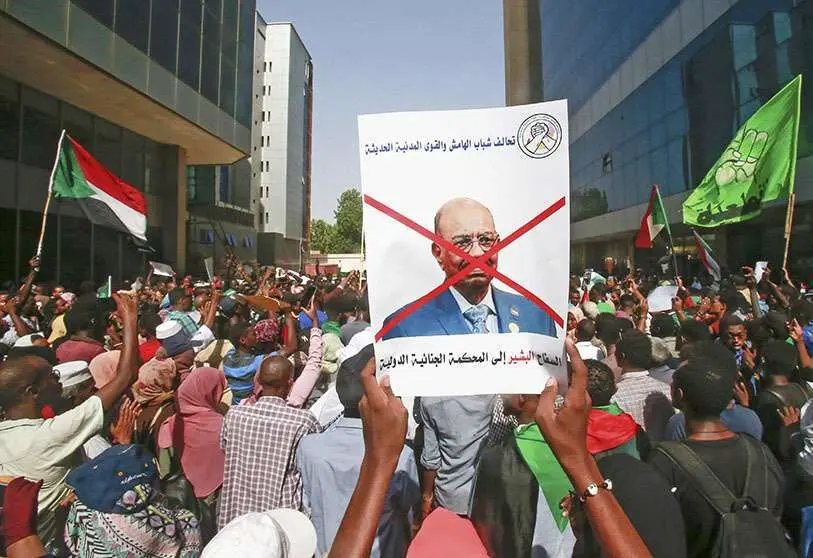Crackdown on Sudanese protesters continues

The convulsive phase in Sudan continues. In the last day, around 20 people have lost their lives and more than a hundred have been injured in the pro-democracy demonstrations against the coup d'état carried out on 25 October this year.
The protests are taking place in several parts of the country, including the capital, Khartoum, where, according to a medical union, 11 people were shot dead, including one woman.
The Sudan Doctors Committee has reported on social media that Sudanese security forces used live ammunition and tear gas directed at protesters.
Among the dead, seven of them died in Khartoum North, two people in Khartoum, and another victim in Omdurman, in addition to those who died in Al-Baraha and Ahmed Gasim hospitals.
It is also estimated that at least 39 people have been killed since the outbreak of the military coup.
According to witnesses of the massacre, security forces targeted "the head, neck or torso".
Also, hundreds of people have been injured in varying degrees of severity, many of them in "critical" condition, according to Sudanese health authorities.

Since the beginning of the protests, the present military government has made communications impossible, cutting off telephone lines, the internet, and blocking bridges to the capital.
"The coup regime is isolating the Sudanese from the world by cutting off all means of communication in order to commit a massacre on our people," the Doctors' Committee said.
Also, according to the health authorities, the security forces "have fired tear gas without concern for the safety of the wounded, the sick and the medical staff" in an attempt to storm the hospital in Alwad.
The coalition, Forces for Freedom and Change (FCC), has said that the cancellation of communications is intended to "cover up" the "crimes and violations" that have been carried out.
Sudan has been on the brink of a new war and the situation has been critical since General Abdel Fattah al-Burhan staged a coup on 25 October.
It began with the arrest of four civilian ministers, including the chief of staff and hitherto prime minister, Abdalla Hamdok, who remains under house arrest, and the dissolution of institutions.

The protests against the army by the Sudanese people have resulted in more than 23 deaths and an untold number of injuries.
The country's main revolutionary groups have responded to the coup, and tens of thousands of people have mobilised in cities across the country to advocate a civilian and democratic transition.
The still unrecovered African country is still reeling from the aftermath of previous conflicts.
To all this must be added a failed coup d'état last September carried out by senior army commanders loyal to former president Omar Hassan al-Bashir, who after being ousted in 2019 after 30 years of dictatorship, was replaced by a transitional military council that would govern for a period of two years, followed by elections.
The former Sudanese president came to power in 1989, ruling with an iron fist what was once Africa's largest country until 2011, when South Sudan broke away.
When he took power, Sudan was in the midst of a 21-year civil war between north and south. To this should be added the outbreak of another conflict in the western region of Darfur, where rebels took up arms in 2003.

Former President Omar Hassan al-Bashir was accused of committing atrocities during his three decades in office against members of the Fur, Masalit and Zaghawa ethnic groups, including murder, extermination, rape, torture and war crimes in attacks on civilians in Darfur and the looting of towns and villages.
The International Criminal Court (ICC) denounced him for war crimes and crimes against humanity.
A successful coup d'état on 25 October would be a major setback for the Sudanese people's aspirations to lay the foundations for a democratic government and the rule of law and consolidate the country's return to democratic transition and openness to the international community.
Nevertheless, there has been some progress, such as the restoration of internet service. Internet service was interrupted in Sudan immediately after the military coup d'état on 25 October and has remained so for more than three weeks since then. The restoration of internet service came hours after a judge ordered the arrest of three telecommunications company directors.








